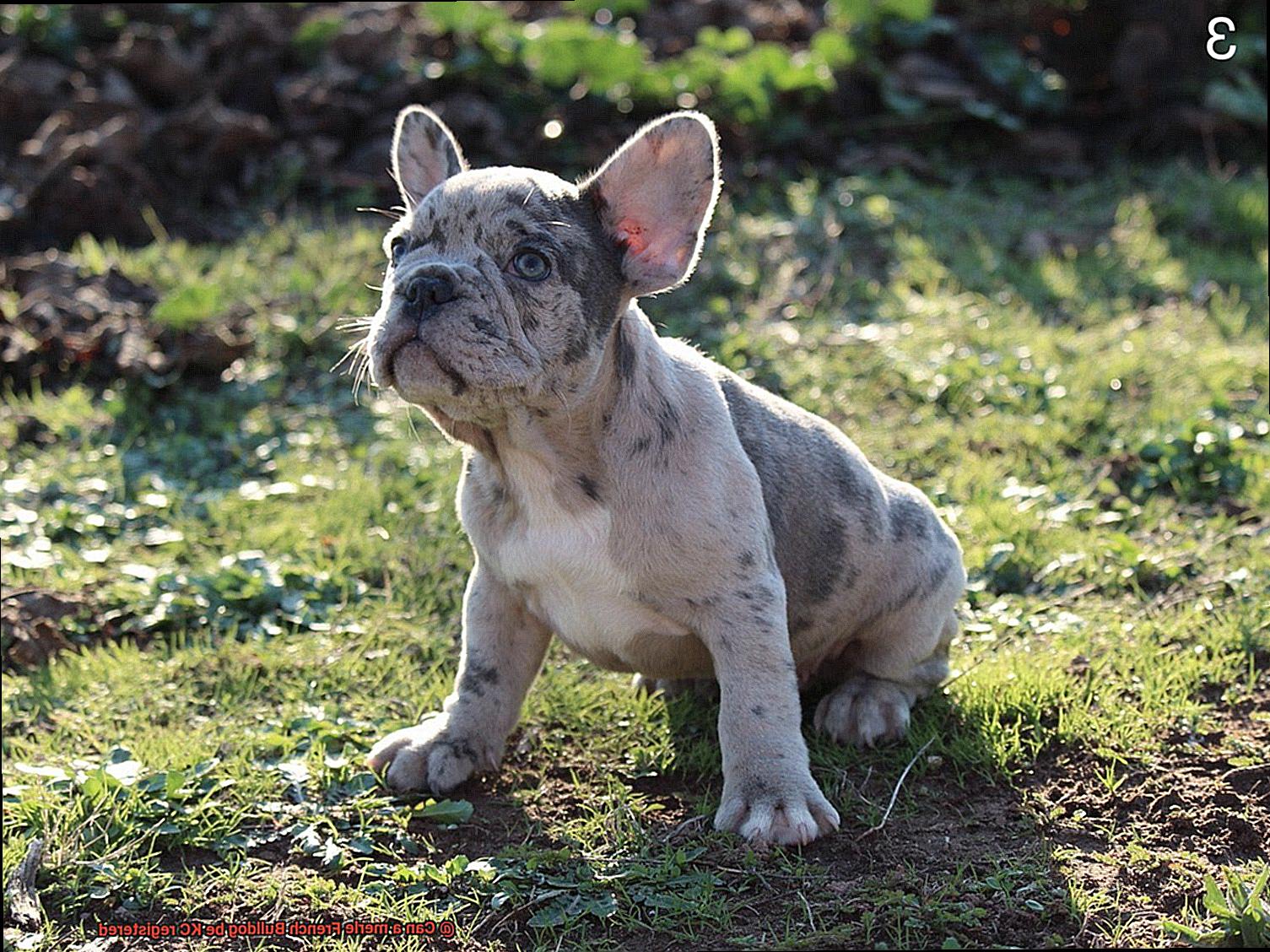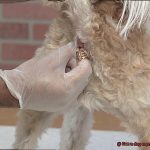Can a merle French Bulldog be KC registered?
Step into the captivating realm of French Bulldogs, where a mesmerizing coat color known as “merle” has ignited intrigue among canine enthusiasts. With its eye-catching patterns and unique charm, the merle coat has sparked countless discussions about its eligibility for registration with the Kennel Club (KC). If you’re itching to uncover the truth, you’ve come to the right place.
In this blog post, we’ll embark on a thrilling journey through the world of merle French Bulldogs and explore whether they can be KC registered. Together, we’ll navigate the guidelines and regulations set forth by the KC, unraveling the factors that determine a French Bulldog’s eligibility for registration. We’ll address any concerns surrounding the enigmatic merle coat and separate fact from fiction.
Join us as we shed light on this mysterious topic and empower you with valuable information to make informed decisions. Whether you’re dreaming of owning a French Bulldog, an experienced breeder, or simply an enthusiast seeking knowledge, get ready to dive deep into this fascinating subject.
Are you prepared? Let’s unveil the secrets that lie within the world of merle French Bulldogs and discover their potential KC registration status.
What is a Merle French Bulldog?
Contents
- 1 What is a Merle French Bulldog?
- 2 What are the KC Breed Standards for French Bulldogs?
- 3 Can a Merle French Bulldog be KC Registered?
- 4 The Benefits of KC Registration for Purebred Dogs
- 5 Potential Health Issues Associated with Merle Genes in French Bulldogs
- 6 Responsible Breeding Practices for Merle French Bulldogs
- 7 Finding a Reputable Breeder of Merle French Bulldogs
- 8 Adopting or Rescuing a Merle French Bulldog
- 9 Conclusion
Well, let’s dive into the world of French Bulldogs and explore this intriguing question.
Understanding the Merle Coat Pattern
First things first, let’s talk about what makes a Merle French Bulldog so special. The Merle coat pattern is characterized by patches or streaks of diluted color on a base coat. It creates a mesmerizing marbled or mottled appearance that sets these dogs apart from their solid-colored counterparts.
The Controversy Surrounding Merle French Bulldogs
The KC, being a prestigious kennel club, has strict guidelines when it comes to breed registrations. According to their breed standard for French Bulldogs, only specific colors and patterns are accepted, such as brindle, fawn, pied, and various combinations of these colors. Unfortunately, the Merle pattern does not fall within these accepted colorations.
Why Isn’t Merle Recognized by the KC?

You might be wondering why the KC doesn’t recognize the Merle pattern for registration. The primary reason is to maintain breed standards and ensure the purity of the breed. The KC’s registration system serves as a pedigree record and helps preserve the characteristics that make French Bulldogs unique.
Alternative Registration Options
Although your Merle French Bulldog may not be eligible for KC registration due to its coat pattern, there are other kennel clubs and organizations that do accept and register Merle French Bulldogs.
For example, the American Kennel Club (AKC) in the United States recognizes and accepts Merle as an acceptable coloration for French Bulldogs. So, if having official recognition is important to you, there are alternative avenues to explore.
Ethical Breeding Practices
When considering a Merle French Bulldog, it is crucial to prioritize the health and well-being of these adorable companions. The Merle gene, when present in certain combinations, can lead to health issues such as hearing and vision problems, as well as an increased susceptibility to certain genetic disorders.
Responsible breeders take these factors into account and ensure they prioritize the overall health of their dogs over specific coat patterns.
Final Thoughts
While a Merle French Bulldog may not be eligible for KC registration, it doesn’t diminish their value or worth as loving companions. Alternative kennel clubs provide opportunities for owners and breeders who wish to have their Merle French Bulldogs officially recognized. However, it’s essential to approach breeders with caution and prioritize responsible breeding practices. Health considerations should always be a priority to ensure the well-being of these unique and beautiful dogs.
What are the KC Breed Standards for French Bulldogs?
French Bulldogs have become one of the most popular dog breeds in recent years, known for their adorable looks and friendly personalities. But did you know that there are specific breed standards set by the Kennel Club (KC) for French Bulldogs? These standards outline the ideal characteristics that a French Bulldog should possess, from their appearance to their temperament. Let’s take a closer look at what these breed standards entail.
- Overall Appearance: French Bulldogs should have a compact and muscular body, giving them a sturdy and well-balanced appearance. They should be medium-sized, with a height at the withers of around 30 cm (12 inches). The weight range for males is between 12-16 kg (26-28 lbs), while females should weigh between 10-14 kg (22-24 lbs).
- Head Shape and Expression: The head of a French Bulldog is one of its most distinctive features. It should be large and square, with a well-defined forehead. The expression should be alert, intelligent, and curious, reflecting the breed’s playful nature.
- Eyes and Ears: French Bulldogs have dark-colored eyes that are set wide apart. They should have a round shape, without any signs of bulging or excessive haw showing. The ears are another important characteristic, often described as “bat-like” in shape. They should be broad at the base and carried high on the head.
- Body Structure: French Bulldogs have a short back and well-developed muscles, giving them a strong and compact body. The chest should be deep and broad, providing ample room for the heart and lungs. The tail is typically short and straight or screwed, but not docked.
- Coat Color: French Bulldogs come in various colors, including brindle, fawn, pied (white with patches of other colors), and any combination of these colors. The coat should be short and fine in texture, with a smooth and glossy appearance.
- Temperament: French Bulldogs are known for their sociable and affectionate nature. They should be friendly towards humans and other animals, making them great companions for families and individuals alike.
- Movement: The KC breed standard emphasizes the importance of sound movement in French Bulldogs. They should have a free and easy gait, without any signs of stiffness or restriction. A French Bulldog’s movement should be effortless and show good reach and drive.
It’s important to note that the KC breed standard serves as a guideline for breeders and judges in dog shows to evaluate French Bulldogs against an ideal standard. However, it doesn’t guarantee that a French Bulldog will be KC registered solely based on meeting these standards.
To be KC registered, a French Bulldog must meet certain criteria, including being registered with the KC-recognized breed club and having parents who are also KC registered. The dog must also pass certain health checks, such as hip scoring and eye examinations, to ensure they are healthy and free from genetic disorders.
Can a Merle French Bulldog be KC Registered?
If you’re a French Bulldog enthusiast, you’ve probably come across the stunning merle pattern. With its mottled coat and unique colors, it’s no wonder these dogs catch the eye. However, when it comes to KC registration, merle French Bulldogs face a roadblock.
The KC is the governing body for dog breeds in the United Kingdom, and they have established strict standards for each breed. While French Bulldogs come in a variety of colors, including brindle, fawn, pied, and black, the merle pattern is not recognized by the KC.
The reason behind this is simple – the merle pattern is caused by a specific gene mutation that can lead to health issues. Responsible breeders prioritize the health and well-being of their dogs over producing desirable coat colors. The merle gene is associated with hearing and vision problems, which can significantly impact a dog’s quality of life.
So, if you’re looking to register your merle French Bulldog with the KC, unfortunately, it’s not possible. However, that doesn’t mean your furry friend won’t make a fantastic companion. Breed standards primarily focus on appearance and not a dog’s temperament or suitability as a pet.
It’s crucial to remember that breeding dogs should prioritize health over coat colors. If you’re considering getting a merle French Bulldog, do thorough research and find a reputable breeder who follows ethical practices and prioritizes the well-being of their dogs.
While alternative registries may accept merle French Bulldogs, it’s important to note that they may not have the same level of recognition or reputation as the KC. Therefore, if you’re looking to show or compete with your dog, it’s crucial to understand the limitations of non-KC registration.
The Benefits of KC Registration for Purebred Dogs
If you’re considering registering your furry friend with the Kennel Club (KC), you’ve come to the right place. KC registration offers a range of benefits for your purebred pup, and in this blog post, we’ll explore why it’s a great idea for your merle French Bulldog.

Pedigree and Lineage:
KC registration ensures that your French Bulldog’s pedigree and lineage are officially recognized. With access to the Kennel Club’s comprehensive database, you can trace your dog’s ancestry back several generations. This is particularly important for breeders who want to maintain the quality and integrity of their breeding lines.
Authenticity and Credibility:
When your French Bulldog is KC registered, it serves as proof that they are a purebred and not a mix or crossbreed. This authenticity and credibility are especially crucial if you plan to participate in dog shows, competitions, or breeding programs where pedigree validation is often required.
Access to Events and Activities:
KC registration opens doors to various services and activities provided by the Kennel Club. You and your French Bulldog can participate in dog shows, obedience trials, agility competitions, and other canine sports. These events offer opportunities for socialization, exercise, and showcasing the unique qualities of your purebred pup.
Health Screening Programs:
The Kennel Club promotes responsible breeding practices and encourages health testing for specific breeds. KC registration grants you access to health screening programs designed to identify potential genetic disorders or hereditary conditions within French Bulldogs. This ensures that your dog’s health is prioritized, helping you address any issues early on.
Smooth Transfer of Ownership:
If you ever need to transfer ownership of your French Bulldog, KC registration simplifies the process. The Kennel Club’s database records your dog’s details, making it easier for new owners to apply for ownership transfer. This transparency ensures a smooth transition and helps maintain the integrity of the breed.
Sense of Belonging and Community:
KC registration fosters a sense of belonging and community among purebred dog owners. By joining the Kennel Club network, you connect with like-minded individuals who share your passion for French Bulldogs. This community offers opportunities to exchange knowledge, experiences, and support, making your journey as a dog owner even more fulfilling.
Registering your merle French Bulldog with the Kennel Club brings a multitude of benefits. From pedigree validation and credibility to access to events, health screening programs, and a supportive community, KC registration is a valuable step for every proud purebred dog owner.
Potential Health Issues Associated with Merle Genes in French Bulldogs
If you’re considering getting a French Bulldog with a merle coat color pattern, it’s important to be aware of the potential health issues that can come along with it. While merle French Bulldogs may have a unique and eye-catching appearance, the merle gene can also bring about some health concerns that require careful attention and management.
Hearing and Vision Problems:
One of the main concerns with merle French Bulldogs is an increased risk of hearing and vision problems. The merle gene can affect the development of the inner ear and the pigmentation of the eyes, leading to conditions such as deafness and partial or complete loss of vision. These issues can significantly impact the dog’s quality of life and may require ongoing care.
Skin Problems:
Merle French Bulldogs are more prone to skin problems due to the effects of the merle gene on pigmentation. They may have excessive sun sensitivity, leading to sunburns and skin damage. Additionally, they may be more susceptible to skin allergies and certain skin conditions. It’s important to provide proper sun protection and carefully monitor their skin health.
Genetic Disorders:
Merle genes in French Bulldogs have been linked to a higher risk of certain genetic disorders. These may include structural abnormalities in the limbs, heart defects, or neurological disorders. Responsible breeders will conduct thorough health testing to minimize these risks, but it’s still important to be aware of the potential for these issues.

Responsible Breeding and Registration:
Breeders should prioritize the health and well-being of their dogs when breeding merle French Bulldogs. The Kennel Club registration process takes into account factors such as health and genetic history, ensuring responsible breeding practices. Breeders should provide accurate information about any potential health issues associated with the merle gene.
Commitment and Care:
Owning a merle French Bulldog requires commitment, understanding, and a willingness to provide necessary care and support for any potential health issues. It’s important to educate yourself about the specific needs of merle French Bulldogs, work closely with a reputable breeder, and be prepared to address any health concerns that may arise.
Responsible Breeding Practices for Merle French Bulldogs
However, it’s crucial to understand that responsible breeding practices are essential to maintain the health and well-being of these unique and beautiful dogs. In this blog post, we will explore why responsible breeding practices for merle French Bulldogs are crucial and provide insights based on first-hand knowledge and credible sources.
Understanding the Risks:
Merle is a dilution gene that affects the pigmentation of a dog’s coat, eyes, and skin. While merle itself is not harmful, breeding two merle dogs together can increase the risk of certain health conditions such as congenital deafness, eye abnormalities, and other health problems. Responsible breeders should avoid “merle-to-merle” breeding to minimize these risks.
Prioritizing Health and Genetic Diversity:
Responsible breeders conduct thorough health screenings on their breeding dogs to identify any underlying health conditions or genetic abnormalities. Regular veterinary check-ups are essential, including evaluations for hip and elbow health and eye examinations. By selecting suitable mates based on their genetic backgrounds, breeders can increase the chances of producing healthy offspring with minimal risk of hereditary diseases.
Socialization and Care:
Proper socialization is crucial for merle French Bulldogs’ development into well-adjusted individuals. Responsible breeders provide a nurturing environment for their dogs, exposing them to various stimuli from an early age. This includes interaction with different people, animals, and environments to help them become confident and adaptable dogs. Puppies should also receive appropriate veterinary care, vaccinations, and regular deworming to ensure their overall health and well-being.
Finding Suitable Forever Homes:
Responsible breeders prioritize finding suitable homes for their merle French Bulldog puppies. They carefully screen potential owners to ensure they are knowledgeable about the breed’s specific needs and committed to providing a loving environment. Breeders may also require contracts that include spay/neuter agreements and provisions for the dog’s welfare if the owner can no longer care for them.
Responsible breeding practices for merle French Bulldogs are essential to ensure the health and happiness of these unique dogs. By avoiding merle-to-merle breeding, prioritizing overall health and genetic diversity, providing proper socialization and care, and finding suitable forever homes, breeders contribute to the well-being of these beloved pets.
If you’re considering adding a merle French Bulldog to your family, make sure to choose a responsible breeder who follows these practices to ensure you have a healthy and happy companion for years to come.
Finding a Reputable Breeder of Merle French Bulldogs
You’ve fallen in love with the stunning coat pattern of merle French Bulldogs and decided to bring one into your family. Congratulations. However, finding a reputable breeder is crucial to ensure the health and well-being of your future furry friend. In this guide, we will explore the importance of researching potential breeders and asking the right questions to find a reputable breeder of merle French Bulldogs.
Thorough Research:
- Search online for breeders specializing in merle French Bulldogs.
- Read reviews and testimonials from previous customers to gauge their reputation.
- Look for breeders registered with the Kennel Club (KC) or reputable dog breeding organizations that promote responsible breeding practices.
Breeding Practices:
- Ask breeders about their breeding program and health testing practices.
- A reputable breeder will be open about genetic health conditions associated with merle French Bulldogs and take steps to minimize risks through selective breeding.
Visit the Facilities:
- If possible, visit the breeder’s facilities in person to assess cleanliness and overall conditions.
- Observe how dogs are cared for and interact with them.
- A reputable breeder will gladly show you around and introduce you to their dogs.
References:
- Request references from previous customers who have purchased merle French Bulldogs from the same breeder.
- Talking to other owners can provide valuable insights into their experience and the health and temperament of the dogs they acquired.
Be Patient:
- Reputable breeders often have waiting lists as they carefully plan their litters to ensure quality offspring.
- Avoid breeders who always have puppies available or are willing to sell without questioning your suitability as an owner.
Adopting or Rescuing a Merle French Bulldog
You’ve fallen head over heels for the mesmerizing beauty of the merle French Bulldog. With their marbled fur and captivating eyes, it’s no wonder these dogs have captured your heart. But before you dive headfirst into adopting or rescuing one, let’s explore everything you need to know to ensure a successful and fulfilling journey.
Merle French Bulldogs are a unique variation of the beloved French Bulldog breed. The merle gene creates a stunning pattern on their coat, with patches of lighter and darker colors. While their appearance is undeniably eye-catching, there are a few things to consider when welcoming a merle Frenchie into your home.
First and foremost, it’s important to note that merle French Bulldogs may not be recognized by certain kennel clubs, such as the Kennel Club in the United Kingdom. However, this doesn’t diminish their value as loving companions or indicate any deficiency in their breed authenticity. Remember, love knows no pedigree.
It’s crucial to understand that the merle coloring in French Bulldogs is a result of a specific gene mutation. This mutation can have potential health implications for your furry friend. Merle dogs are more prone to certain genetic disorders and health conditions compared to non-merle dogs. These issues may include eye abnormalities, hearing problems, and skin sensitivities. Regular veterinary check-ups and potential health expenses should be factored into your decision.
Now that we’ve covered the potential challenges, let’s explore the avenues for adopting or rescuing a merle French Bulldog. When searching for your perfect companion, it’s essential to choose a reputable source. Working with a responsible breeder who prioritizes the health and welfare of their dogs is paramount. Look for breeders who conduct appropriate health screenings and provide necessary paperwork and documentation.
Alternatively, adopting from a rescue organization or shelter is a wonderful option. Not only will you be providing a loving home for a dog in need, but you may also find a merle French Bulldog waiting to steal your heart. Don’t forget to ask questions about the dog’s background and health history to ensure you are fully prepared for the responsibilities that come with owning a merle Frenchie.
Once you’ve found your perfect merle companion, it’s time to provide them with the love and care they deserve. Regular grooming, exercise, and a balanced diet are essential for their overall well-being. Early socialization and obedience training can also help prevent or manage potential behavioral issues.
dD-H1D7NQFM” >
Conclusion
In conclusion, it is important to note that a merle French Bulldog cannot be KC registered.
The Kennel Club (KC) has strict guidelines for breed standards and coloration, and merle is not recognized as an acceptable coat color for French Bulldogs. This decision is based on the potential health issues associated with the merle gene, such as hearing and vision problems.
Therefore, if you are considering getting a French Bulldog, it is advisable to choose a reputable breeder who follows the KC guidelines and prioritizes the overall health and welfare of their dogs.




